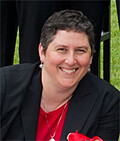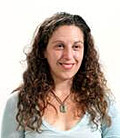Despite decades of productive breast cancer research, the number of women diagnosed with breast cancer continues to rise. A federal report, Breast Cancer and the Environment: Prioritizing Prevention, released earlier this year concludes that preventing exposure to environmental risk factors is the most promising path to decrease incidence of breast cancer. The report includes the largest-to-date survey of peer-reviewed science on breast cancer and the environment, finding that environmental factors such as toxic chemical exposure increase breast cancer risk. It calls for a national, comprehensive, cross-governmental breast cancer prevention strategy.
On this call hosted by CHE-Alaska, Breast Cancer Fund guest presenters Connie Engel and Nancy Buermeyer led a discussion of the report’s findings and research and policy recommendations.
Featured Speakers
 Nancy Buermeyer is senior policy strategist at the Breast Cancer Fund. Ms. Buermeyer draws on 25 years of experience as a policy strategist and lobbyist, and has played a key role in shifting the landscape on crucial public health and civil rights issues including chemicals policy reform, gay rights and women in the military. As a leading figure in the movement to strengthen laws governing synthetic chemicals, Ms. Buermeyer lobbied for one of the Breast Cancer Fund’s biggest victories: a federal ban on phthalates in children’s toys in 2008. She has also successfully advocated for increased federal funding of biomonitoring and health tracking programs.
Nancy Buermeyer is senior policy strategist at the Breast Cancer Fund. Ms. Buermeyer draws on 25 years of experience as a policy strategist and lobbyist, and has played a key role in shifting the landscape on crucial public health and civil rights issues including chemicals policy reform, gay rights and women in the military. As a leading figure in the movement to strengthen laws governing synthetic chemicals, Ms. Buermeyer lobbied for one of the Breast Cancer Fund’s biggest victories: a federal ban on phthalates in children’s toys in 2008. She has also successfully advocated for increased federal funding of biomonitoring and health tracking programs.
 Connie Engel, PhD, science and education manager at the Breast Cancer Fund, is an expert on the conjunction of science and advocacy in the environmental breast cancer movement. Her extensive study of social movements, social change,and health psychology provide a cross-disciplinary lens to the Breast Cancer Fund’s science-based advocacy efforts. Her work focuses on efforts to translate the science into public education and market- and policy-based change.
Connie Engel, PhD, science and education manager at the Breast Cancer Fund, is an expert on the conjunction of science and advocacy in the environmental breast cancer movement. Her extensive study of social movements, social change,and health psychology provide a cross-disciplinary lens to the Breast Cancer Fund’s science-based advocacy efforts. Her work focuses on efforts to translate the science into public education and market- and policy-based change.
The lasted one hour and was recorded.
